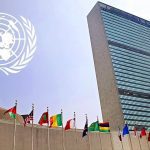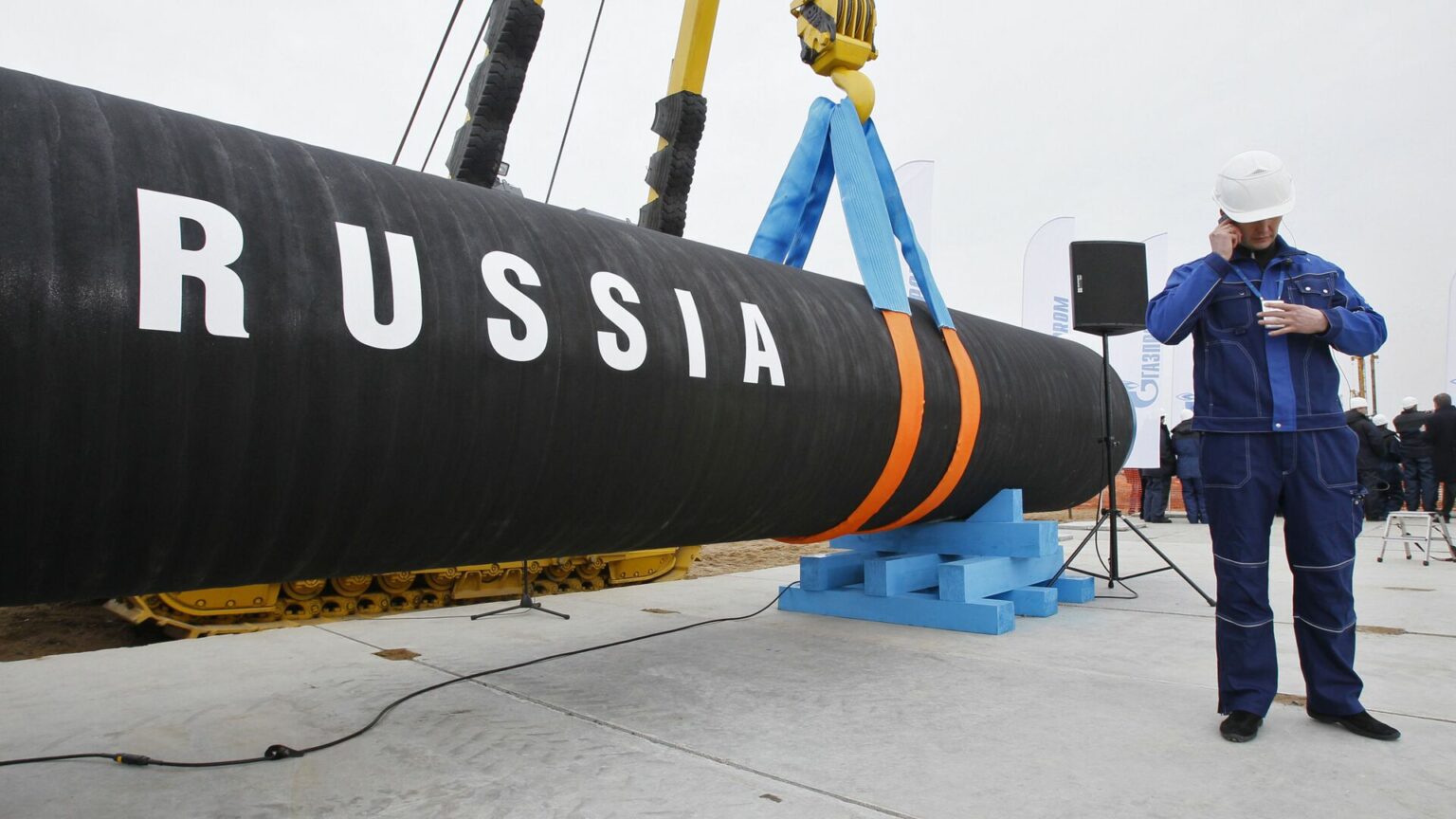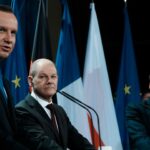Since the outbreak of the Russo-Ukrainian war, global energy markets have been witnessing successive developments that placed unprecedented pressure on global supplies amid mutual sanctions between the Western countries and Russia, including Putin’s decision to sell Russian energy in rubles rather than the US dollar; otherwise the existing contracts will be put on hold.
At the end of March, Moscow decided to sell Russian gas and oil to what it called “non-friendly countries” (i.e. countries that imposed sanctions on Russia) in the ruble. According to the new payment system, importers will have to open two accounts at the private-owned Russian bank Gazprombank, one in the ruble and the other in a foreign currency, where importers will deposit euros in the foreign currency account and Gazprom will convert them into rubles, either through purchasing them from the market or borrowing them from the Central Bank of the Russian Federation (CBRF), and then transfers them to the rubles account of the gas importer. This mechanism allows EU countries to pay in foreign currencies while Gazprom continues to be paid in the ruble for natural gas.
Global responses to this decision varied significantly between acceptance and rejection. Russian Foreign Minister Sergei Lavrov announced that most of Russia’s international partners had agreed to the payment system introduced by Moscow. According to some press reports, dozens of European companies had already opened accounts with Gazprom to meet Russia’s requirements. However, Germany and France rejected the Russian decision, stressing its violation of existing agreements that provide for making payments for Russian gas supplies in euros only.
Reasons behind the Decision
Russia’s decision has been motivated by several goals, some of which are long-term and some are short-term. In general, Putin aims at supporting Russia’s local currency which has declined sharply since the outbreak of the Russo-Ukrainian war and circumventing the western sanctions imposed on the CBRF while endeavoring to reduce global dependence on the US dollar in commercial transactions. These aims can be detailed as follows:
• Supporting the Ruble: Over the first two weeks of the Ukraine war, the Russian ruble lost about 43 percent of its value against the dollar, which took the ruble’s exchange rates to historically low levels to record 135 RUB/USD by 10 March 2022, up from 80 RUB/USD before the start of the war and during February, as is shown in figure 1.
Figure 1: Russian Ruble to Dollar Exchange Rate
As is indicated in the above chart, from the end of March until early May, the Russian ruble started to stabilize, returning to the levels recorded before the war, at about 67.7 RUB/USD on 11 May.
This historical devaluation of the ruble could be attributed to the Western sanctions that have been imposed on Moscow following its invasion of Ukraine, including freezing of the assets that the CBRF holds in the European Union (EU) and the United States, which means restricting access of the CBRF to its reserves abroad and limiting its ability to use those foreign currencies to maintain the stability of its local currency.
In response to this, Russia took dramatic steps to support the ruble, including introducing immediate capital controls, imposing a ban on foreign investors’ sale of Russian assets and exporters’ sale of hard currency, issuing a decree requiring buyers of Russian gas to pay in rubles, and requiring companies to convert about 80 percent of their profits into rubles, implying selling about 80 percent of foreign exchange earnings on the Moscow Exchange, which resulted in a continuous increase in the supply of foreign currencies in the local market.
• Circumventing Western Sanctions: In late February, the United States and its European allies decided to ban transactions with the CBRF, creating obstacles to Russia to prevent stabilization of the ruble. In this context, the EU warned member states that Putin’s decision is a violation of existing agreements, stressing that it will take legal action against EU countries that allow their energy companies to pay for Russian gas in rubles, as Putin’s decision may force Western countries to deal with the CBRF, which would render their sanctions less effective. Further, this decision also gives Russia the ability to control the timing and rate of foreign currency conversion, and gives Gazprom a central role in the payment mechanism, ensuring it remains away from the Western sanction which would enable it to continue to receive payments and remain connected to international financial markets and capable of holding and managing currencies and financial instruments.
Clearly, Putin is trying to find solutions to counter international sanctions, reduce their impact on the local economy, and redirect some of the implications of these sanctions on Western economies and companies.
That said, some European countries such as Hungary and Slovakia announced that Putin’s decision does not circumvent the sanctions, as the new payment mechanism is a purely technical thing that can be agreed upon in new contracts between the EU countries and Russia.
• Confronting the Dominance of the US Dollar: The International Monetary Fund warned that the recent Russian steps, e.g. paying for natural gas in rubles and pegging the ruble to gold, may gradually undermine the dominance of the dollar, which would give rise to a more fragmented international monetary system. On the other hand, the United States’ increased use of financial sanctions as an instrument of foreign policy may push countries to diversify their reserves instead of the excessive dependence on dollar-denominated assets.
Generally, over the past years, Russia has taken several steps to counter the dominance of the US dollar in the global economy. Since 2014, Moscow has made efforts to reduce the share of trade conducted in the US dollar by using other national currencies in bilateral trade and introducing the System for Transfer of Financial Messages (SPFS), i.e. a Russian equivalent of the SWIFT financial transfer system. Additionally, the CBRF reduced the dollar share of total cash reserves to 10.9 percent in January 2022, down from 21.2 percent in the past year.
Despite these efforts, the US dollar remains the key currency in forex trading and nearly three-fifths of reserves of all central banks are in dollars. So, despite some gains for Moscow, the Russian steps will not necessarily mean putting an end to the dollar’s dominance globally.
The Decision’s Fallout and Edge of Influence
Putin’s decision that demands exporters to pay for natural gas in rubles is indicative of the instability of the energy markets, which may be subject to other incremental decisions by relevant parties from time to time. Overall, Russia’s decisions has resulted in many consequences and repercussions that can be clarified as follows:
• Increased Prices of Natural Gas: European natural gas contracts rose sharply after Putin announced the new payment mechanism, jumping to above €100/ megawatt-hour. By late March, natural gas prices recorded about €121.6/megawatt-hour, as is shown in figure 2.
Figure 2: The Future of Natural Gas in European Markets (Euro/megawatt-hour)
These increases in natural gas prices come against the widespread fears related to the possible interruption of energy supplies to the European market in the event of Europe’s non-compliance with Putin’s decision. This means a further decline in the natural gas supply in conjunction with the persistent demand, particularly given Putin’s warnings of possible cuts of natural gas supplies if not paid in rubles.
• Halting Natural Gas Exports: Putin carried out his threats regarding restricting the flow of natural gas to countries that refuse to pay for natural gas in rubles. In this vein, Gazprom announced cutting off gas supplies to Poland and Bulgaria for not paying in rubles. Gazprom informed Bulgargaz and the Polish Oil and Gas Company that it will suspend gas supplies as of 27 April until payments are made in rubles. The two companies already confirmed the halt of gas supplies from Russia. This is the first time that Russia has cut off gas to European customers since it mounted its invasion of Ukraine.
Notably, Bulgaria and Poland are considered transit countries for Russian gas and the Russian gas accounts for 75.2 percent and 54.9 percent of their natural gas supplies, as is shown in figure 3.
Figure 3: Russia’s share of total European gas supplies
This decision is demonstrative of the effectiveness of natural gas as a pressing tool on European countries that would help Moscow achieve its goals. Upon the announcement of this decision, Bulgaria stated that it would work to find alternative sources to replace the Russian gas supplies. In the same context, President of the European Commission, Ursula von der Leyen, said that Poland and Bulgaria would get gas from neighboring countries.
Despite the high volume of potential damage to be inflicted on other European countries if Russia decides to halt natural gas supplies, Russia will also be affected by this step due to its loss of a vital source of foreign exchange, particularly given the Western sanctions imposed on the Russian economy.
• Reducing Reliance on Russian Gas: Following the outbreak of the Russia-Ukraine war, European countries have realized the importance of reducing dependence on Russian gas and turning to alternative sources. In this vein, on 8 March, the EU unveiled its medium-term plan to do away with the dependence on Russian energy, stressing that it will reduce its purchases of Russian gas by two-thirds before the end of the year, towards becoming independent from Russian fossil fuels before 2030.
Additionally, the European Commission announced that natural gas and liquefied natural gas from other countries such as the United States and Qatar could replace more than a third of Europe’s gas imports from Russia, totaling about 155 billion cubic meters and new wind and solar energy projects could replace 20 billion cubic meters of demand on gas this year. Thus, the European plan is based on two pillars, namely 1) diversifying gas supplies by increasing imports of liquefied natural gas from suppliers other than Russia along with increasing the use of bio-methane and hydrogen and 2) accelerating the fossil fuel phase-out in homes, factories, and energy systems, by enhancing energy efficiency and increasing renewable energy sources.
In this connection, several governments have launched individual initiatives to achieve this plan. For instance, Greece works to accelerate natural gas excavation operations, Germany has allocated about €3 billion to secure stations to import liquefied natural gas, and France plans to develop biogas production techniques to end dependence on Russian gas permanently by 2030.
• Disruption of Plans to Fight Climate Change: The escalation of conflict between Russia and Western countries has caused the latter to reconsider the use of coal (the most polluting energy source) as a quick option to compensate for any shortage in energy supplies. Germany and Britain had to restart coal power plants after they were about to be decommissioned in fulfillment of their commitments to reduce carbon emissions. Serbia announced that it would not stop coal power plants soon given its efforts to mitigate repercussions of Covid-19. However, European countries’ recourse to domestic coal as an alternative to Russian energy runs counter to their strategies to fight climate change in Europe. As such, the quick fixes adopted by the EU leaders to reduce dependence on Russian exports isn’t likely to serve climate goals in the long run.
Accordingly, the United Nations Secretary-General António Guterres warned that fluctuations in the energy market may impede the transition to clean energy sources, noting that achieving goals of the Paris Climate Agreement requires reducing the global consumption of fossil fuels by 55 percent. However, after the outbreak of the war, the use of fossil fuels is expected to increase by 14 percent to compensate for any shortage in the energy supply, particularly amid uncertainty about the prospects for the global economy.
Overall, Russia will not hesitate to use natural gas as a geopolitical weapon that achieves its strategic goals and enables it to ease the sanctions imposed on it, especially with Russian gas fulfilling 40 percent of Europe’s natural gas needs.












